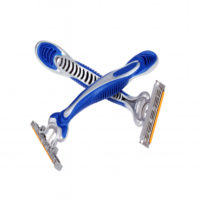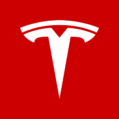The Industry Reacts to Edgewell's Acquisition of Harry's
by Hugh Williams on 15th May 2019 in News


Edgewell’s acquisition of Harry’s has loomed larger over not only DTC news, but wider trade news, since its announcement last week. Here, we get the opinion of five industry experts on what the deal means for DTC brands, why Edgewell decided to part with such a large sum, and what the benefits might be for Harry’s.
Ronald C. Pruett Jr., managing partner, The Boston Associates explains that, “clearly, the purchase was a win for the overall DTC category but with a few caveats. First, Edgewell really purchased ‘DTC DNA’. They weren't able to succeed quickly enough on their own without an acquisition. There will be many more of these. Second, note that Edgewell is not a category-leading player with their Schick and Wilkinson brands. They're more vulnerable to the Harry's of the world as a third-tier player than true incumbent leaders. So there will be more tertiary companies reaching for a DTC life preserver. Smart upstart DTC brands should be eyeing exit partners now. Third, the ROI for the later round from Harry's investors was just OK. Not great. It could be that Harry's had the chance to exit earlier than anticipated, or that the realisation of increased marketing costs made such a partnership necessary. I suspect both. The bottom line is that for many DTC brands, the customer acquisition costs are rising and many, under pressure from their investors, will be re-aligning in 2019.”
Alex Song, founder and CEO, Innovation Department, says Edgewell have themselves acquired a holding company in their purchase of Harry’s: “Dollar Shave and Harry’s were both acquired primarily because of the form factor of their product and the long-term relationship they held with their subscription customers. Razors are low cost products in an industry that has had minimal investment in branding historically. The lifetime value of this customer is high due to the exceptionally long periods of subscription given the replenishment cycle of razors and profitable margins.
“Both Unilever and Edgewell acquired these DTC brands primarily for the customer relationships that both were able to create through great consumer branding and narrative. The synergies obtainable are primarily due to the opportunity to expand the offering of products laterally – meaning there will be many other men’s personal care items that will be sold through the relationships that Harry’s has built with their customers.
“The fact that Harry’s was focused on transforming its business into a holding company demonstrates that it was already focused on evolving from high top-line growth towards profitability. Harry’s 'Venture Lab' initiative creates the opportunity for Edgewell to acquire Harry’s to be the future innovation hub for an older corporate environment.”
Chris Perry, VP, global executive education, Edge by Ascential, argues that the acquisition paves the way for more potential partnerships for Harry’s. He says: “While Harry’s is a digitally-native brand, this strategic acquisition provides Edgewell with the potential for accelerated growth globally. In the US, it gives them an even more valuable partnership with Target, which has already brought Harry’s and several other direct-to-consumer brands exclusively in-store - ultimately at the expense of some traditional brand leaders - to differentiate their assortment and in-store shopper experience. This partnership model with Target is a powerful growth strategy that could be replicated in other markets, like the UK, with leading retailers.
“Another advantage for Edgewell is having a recent and extremely relevant case study of the Dollar Shave Club acquisition by Unilever to leverage and outperform through the integration and demand acceleration.”
David Gosen, chief commercial officer, Cxense notes that the acquisition of Harry’s could still pose problems for Edgwell further down the line: “This is an incredibly strategic move from Edgewell, who already have razor brands Wilkinson Sword and Schick in their portfolio. Harry’s are a disruptor brand that have, together with Dollar Shave Club, made established shaving giants nervous. Edgewell could merely swallow up and bury the Harry’s brand as a means of squashing competition, but it’s likely approach is to absorb and utilise Harry’s knowledge of subscription models, customer centricity, and impeccable customer experience across its shaving brands, allowing them to grow customer lifetime value.
“The importance of being able to manage huge volumes of data to optimise the customer journey will rear its head as Edgewell embark on this massive change for a traditional transaction, sales-oriented company. Now Edgewell needs to prove that it can accelerate growth and build on the success that Harry's has had. There’s an opportunity for them to capitalise on the relationship that Harry’s customers have with the brand as they add subscriptions to their business model.”
Tom Rolph, VP, EMEA, Tapad says the acquisition will have been driven by Edgewell’s desire for more data. “The USD$1.37bn (£1.04bn) that Edgewell has paid to acquire Harry’s shows the true value of direct-to-consumer brands to the major FMCG businesses, which traditionally rely on retailers to reach consumers – it’s all in the data.
“Direct-to-consumer brands have a unique relationship with their consumers, which traditional businesses, which have relied on third parties for sales – in this case supermarkets and chemists - have struggled to replicate. This is because traditional retailers simply don’t have the first-party data that direct-to-consumer brands have, and therefore can lack a depth of understanding about their customers.
“Acquiring a direct-to-consumer brand, like Edgewell has done with Harry’s, is one route to gaining this intelligence. Edgewell has the opportunity to use Harry’s wealth of first-party data not only to grow the Harry’s brand, but also use this data to grow its other products.”







Follow Fast Growth Brands